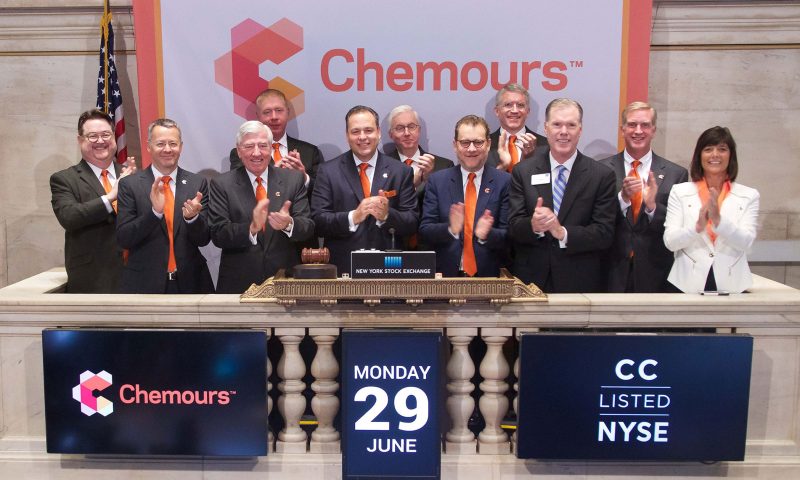Chemours Company (The) (CC) had a good day on the market for Friday October 11 as shares jumped 7.07% to close at $14.84. About 2.79 million shares traded hands on 20,364 trades for the day, compared with an average daily volume of n/a shares out of a total float of 163.48 million. After opening the trading day at $14.20, shares of Chemours Company (The) stayed within a range of $14.98 to $14.16.
With today’s gains, Chemours Company (The) now has a market cap of $2.43 billion. Shares of Chemours Company (The) have been trading within a range of $41.60 and $11.71 over the last year, and it had a 50-day SMA of $n/a and a 200-day SMA of $n/a.
The Chemours Co is a global provider of chemicals. It delivers customized solutions with a wide range of industrial and specialty chemicals products for various markets. The activities of the group are operated through three segments namely Titanium Technologies segment, a producer of TiO2 pigment, a premium white pigment used to deliver whiteness, brightness, opacity, and protection in a variety of applications; Fluoroproducts segment is provider of fluoroproducts, including refrigerants and industrial fluoropolymer resins; and Chemical Solutions segment provides industrial chemicals which are used in gold production, industrials, and consumer applications. Geographically, the business presence of the firm is seen in North America, Europe, Middle East, Africa and Latin America.
Chemours Company (The) is based out of Wilmington, DE and has some 7,000 employees. Its CEO is Mark P. Vergnano.
Chemours Company (The) is also a component of the Russell 2000. The Russell 2000 is one of the leading indices tracking small-cap companies in the United States. It’s maintained by Russell Investments, an industry leader in creating and maintaining indices, and consists of the smallest 2000 stocks from the broader Russell 3000 index.
Russell’s indices differ from traditional indices like the Dow Jones Industrial Average (DJIA) or S&P 500, whose members are selected by committee, because they base membership entirely on an objective, rules based methodology. The 3,000 largest companies by market cap make up the Russell 3000, with the 2,000 smaller companies making up the Russell 2000. It’s a simple approach that gives a broad, unbiased look at the small-cap market as a whole.

